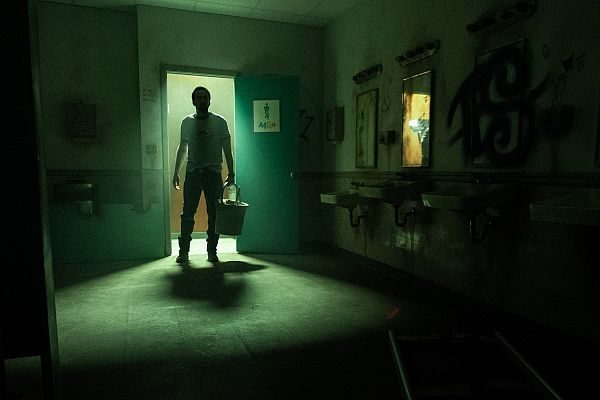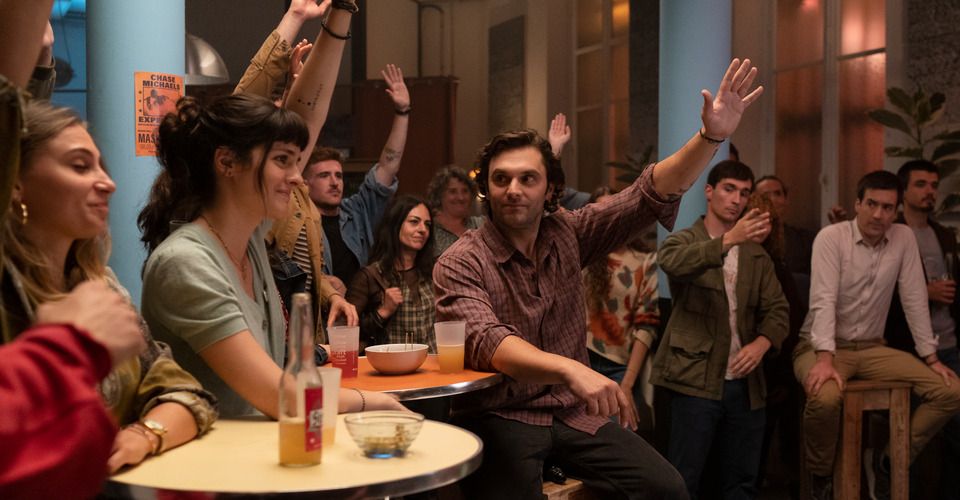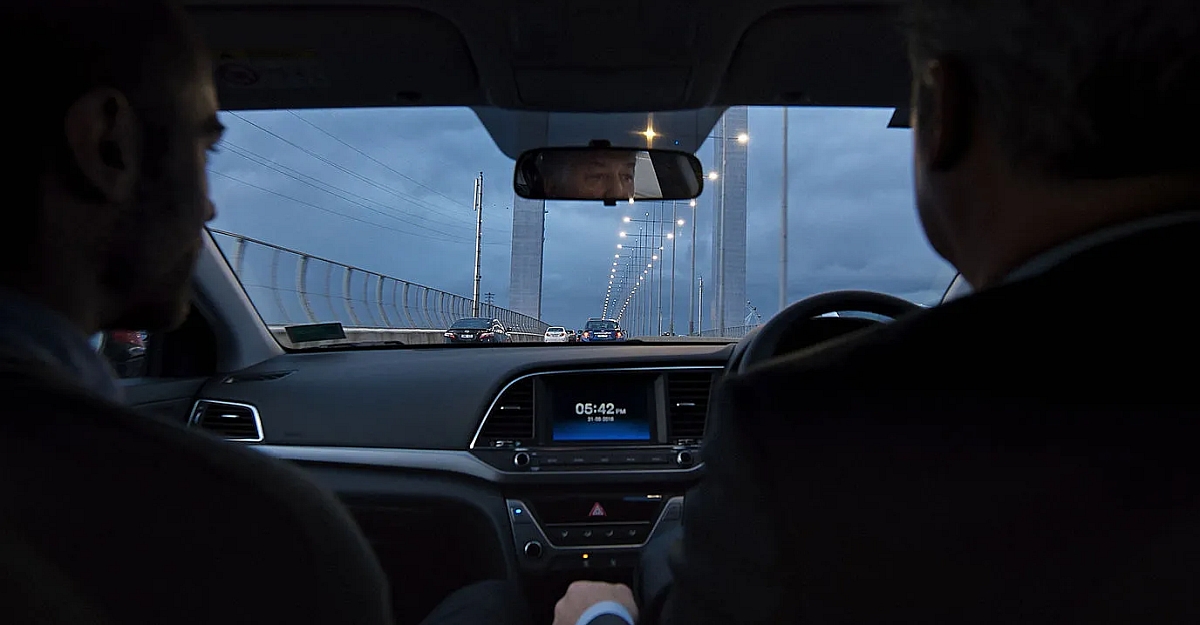In director Kevin Lewis’ latest film, Willy’s Wonderland, we are confronted with two nightmares: being trapped in a children’s entertainment venue inhabited by haunted automata; and the torment of living as hostages, held captive by capital. The film’s strength lies in its ability to convey us from the first of these horrors to the second.
A silent, soda pop-addicted loner is speeding down a rural road when his tyres blow. Someone left a spike chain on the road that they busted from the back of the sheriff’s car. Luckily, a mechanic in a tow truck is just about to pass by. Unluckily, by the time he gets to the shop, our loner finds out that his credit card is no good, and there are no ATMs in the town. Luckily again, if the loner is willing to work to pay for his car to get fixed, the mechanic knows a local business owner who needs someone to come in overnight to do some cleaning at his children’s party restaurant—Willy’s Wonderland. The loner agrees, because what choice does he have, really? On his way to the restaurant, he passes the sheriff who had just arrested a teenage girl for trying to torch the place down. They exchange a glance, but no words. The loner and the mechanic meet the owner, one Tex Macadoo, outside the restaurant. Macadoo takes the loner inside, shows him around, leaves. Director Kevin Lewis is quick with the setup, because he knows it isn’t why we’re here. It doesn’t take long before the killing begins.
The animatronic characters—think Chuck E Cheese and his gang—are possessed by Satan-worshipping serial killers, and the loner has been brought there as a sacrifice to stop them from killing the genteel townspeople, who want nothing but to live their lives out peacefully. Meanwhile, the teenage arrestee is freed by her friends, and they immediately embark on a mission: to save the loner and torch down the restaurant.
At this story level, Willy’s Wonderland is a fun, if somewhat cliché, action-horror. Nick Cage is terrific as the pastiche of the stoic action hero—he doesn’t say a word in the entire film, but still effortlessly glides from silent badass to sugar-high disco fan dancing while playing on an old pinball machine and then back again to the embodiment of violence. The supporting cast, led by Emily Tosta as Liv, the teenage arsonist, fit their characters well and slot into the ‘teenagers in a slasher’ trope with ease.
But there is a deeper layer. The titular Willy’s Wonderland is holding the townspeople hostage. If the possessed animatronic puppets aren’t provided with flesh to feed on or with souls to claim, the murderers haunting the restaurant will break out and wreak havoc on the entire town. Despite some initial trepidation, the townspeople accept this situation. As the sheriff explains, fighting would ‘only incite them, so we decided to let sleeping dogs lie.’
It’s not that the townspeople are necessarily comfortable with the situation. Rather, they accept it with the resignation that there’s nothing to be done, and that this is just the state of affairs. We can understand it through what Mark Fisher describes as capitalist realism: a ‘kind of pervasive atmosphere … acting as a kind of invisible barrier constraining thought and action.’ They simply can no longer imagine what fighting or an alternative would look like.
The pervasiveness of capital leads to a totalising mentality, making us see others as mere resources to be used to whatever end, and to a state of self-delusion whereby those who are on the margins either deserve what happens to them (if they refuse to participate or challenge the system) or aren’t our responsibility (if they are merely unlucky). All transgressions are fit for punishment. We see this in the Sherriff’s attitude to the people used as a sacrifice, as she justifies the unconscionable action to herself by saying the victims are ‘people with the wrong character, or just in the wrong place at the wrong time.’
But it isn’t just the out-group that is the victim of this parasitic relationship. Those who are forced to maintain it, do so under threat of violence and with the sense that the situation will continue with or without their willing participation. This is presented as the only available reality, and challenging it a sign of madness.
Cage’s character, listed in the credits as ‘the Janitor,’ disrupts this order. At the outset, the Sheriff, the Mechanic, and Tex Macadoo bring him in as the restaurant’s next victim. Macadoo, the only one actually who stands to benefit, is happy to continue sacrificing innocents to his business, while the Mechanic acts as a middle manager. The Sheriff, as protector of the neoliberal political order, is interested in preserving the status quo in the name of the capitalists who benefit. She reacts to the crisis caused by the Janitor’s resolve to complete his task the same way neoliberal governments reacted time and again to the many crises of capitalism—by bailing out the very institution holding society hostage and causing the crisis in the first place.
It is not that the Sheriff wants this situation to continue. It is rather that the domain of the real is already established. That is to say, the alternative isn’t a possibility to her. The Janitor’s disruption, though it should be welcome—it is, after all, liberating—contradicts the simple facts. And so, instead of stopping the spilling of innocent blood, the Sheriff works to ensure that the sacrifice is successful.
As the Janitor, Cage is the ultimate liberator, an unstoppable force showing us that an alternative is possible. In staging this dynamic, the film goes beyond a simple violent narrative, but gives us hope that, if we are only willing to undermine the reality of capitalism, to entertain its alternatives, they, too, will become possible.



